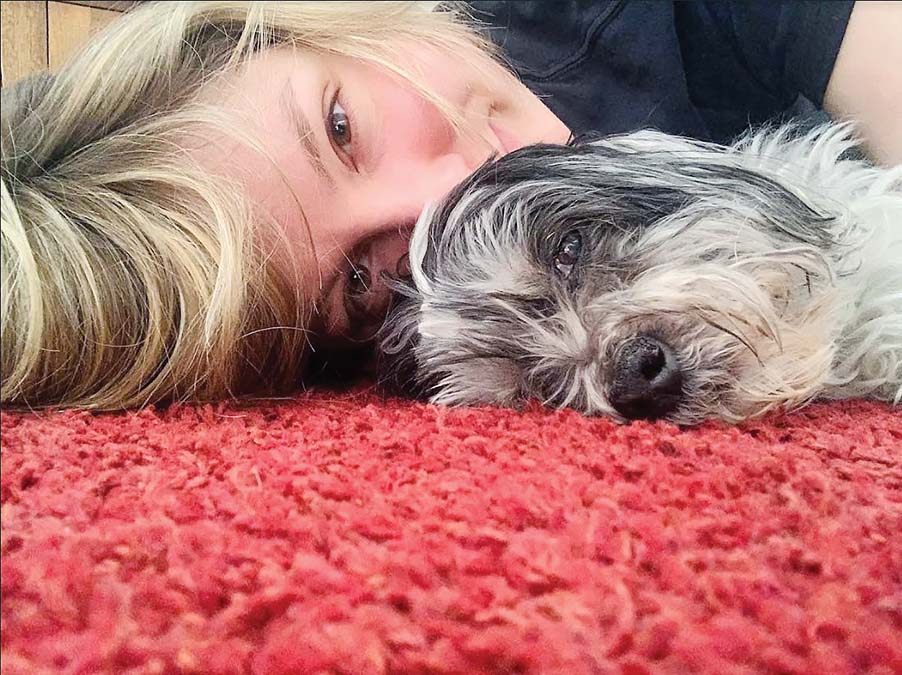A MOUNT Eliza woman struggling to come to grips with the death of her dog after it ate contaminated meat is focused on “ensuring it never happens again”.
Molly Patton, 28, lost her “best friend” Scarlett to the effects of the indospicine toxin in meat believed to have been sourced from the Northern Territory and bought locally.
Ms Patton said she had been unaware that the “kangaroo” meat she had thought she was buying from her regular wholesaler had been mixed with beef and horse meat contaminated by indospicine, which is highly toxic to dogs.
Scarlett and Ms Patton’s parents’ dog, Ruby, became ill and Scarlett stopped eating. Placed on a feeding tube at a Mornington vet hospital she declined slowly and, within one month, suffered heart failure. Ruby recovered slowly after eight days in intensive care.
Ms Patton and her family spent more than $16,000 trying to save their dogs’ lives – and all because the meat she bought was not labelled correctly and was not safe.
So far, 26 dogs have died in Victoria – including at least two on the Mornington Peninsula – and 65 hospitalised after the natural toxin was found in their blood and livers (“Deadly pet poison may reappear” The News 24/8/21).
“Right now, nothing is preventing [it happening again] – no laws, no regulations,” Ms Patton said.
“The rules around pet food sit conveniently in the grey areas between existing regulatory bodies – governed by none and palmed off to the too hard basket again and again.
“This loophole is what allowed an entire supply chain to fail the bare minimum of expectations: to sell what they advertise and ensure it is safe. They will move on from this unscathed, untarnished. I will not. And the 60-plus families left devastated by this spate of negligence will not.”
Ms Patton said she had not been notified of any mandatory meat recall to warn other families and prevent more dogs from dying.
“It’s possible that this meat has gone on to be used in canned dog food/frozen dog food, and may still be in someone’s freezer, yet to be served to their dog,” she said.
Agriculture Victoria and PrimeSafe last week finalised their investigation into the cause of the “dog liver disease cluster” without any hint of penalties.
They reminded dog owners not to feed their pets any fresh or frozen raw meat sourced from Maffra District Knackery, from 31 May to 3 July. “Neither cooking nor freezing will destroy the toxin that remains in the meat. Please contact your supplier to confirm the source of your pet meat.”
The authorities said voluntary withdrawals and consumer level recalls “are considered to have removed indospicine contaminated pet meat from the supply chain”.
Veterinarian Dr Kelly Halls, of the Benton’s Road Veterinary Clinic, Mornington urges pet owners to dispose of any raw meat in their freezers. “You can’t be sure it is OK,” she said. “It may be contaminated.”
Dr Halls recommends owners buy only meat fit for human consumption, say, from butchers or supermarkets, to negate the risk of indospicine poisoning.
“This is a crappy situation. It’s no one’s fault. The problem has come about because of differing standards in assessing meat,” she said.
Law firm Maurice Blackburn is investigating a class action against Maffra & District Knackery seeking redress for distressed dog owners.
Senior associate Charles Noonan said the knackery had an obligation to its customers to ensure its products were free from toxins, such as indospicine, known to cause serious health issues to dogs.
“The fact that [it] may not have breached any food manufacturing laws highlights the relaxed regulation of the pet food industry but doesn’t exonerate [it] from liability for breaching its obligations to customers as a manufacturer and supplier of dog food,” Mr Noonan said.


